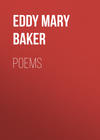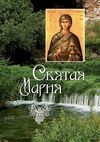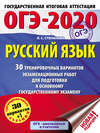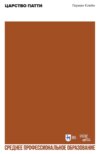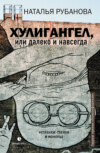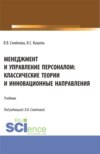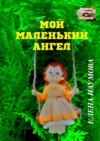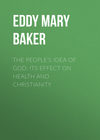Buch lesen: «Poems»
PREFACE
The poems garnered up in this little volume were written at different periods in the life of the author, dating from her early girlhood up to recent years. They were not written with a view of making a book, each poem being the spontaneous outpouring of a deeply poetic nature and called forth by some experience that claimed her attention.
The "Old Man of the Mountain," for instance, was written while the author was contemplating this lofty New Hampshire crag, whose rugged outlines resemble the profile of a human face. Inspired by the grandeur of this masterpiece of nature's handiwork, and looking "up through nature, unto nature's God," the poem began to take form in her thought, and alighting from her carriage, she seated herself by the roadside and began to write. Some tourists who were passing, and who made her acquaintance, asked her what she was writing, and she replied by reading the poem to them. They were so pleased with it that each requested a copy, which was subsequently mailed to them. Similar requests continued to reach the author for years afterward, until the poem finally found its way into print, appearing, together with "The Valley Cemetery," in a book "Gems for You," published in Manchester, N. H., in 1850, and again in Boston, in 1856.
The poem on the "Dedication of a Temperance Hall," in Lynn, Mass., in 1866, was written for that occasion, and was sung by the audience as a dedicatory hymn. "The Liberty Bells" appeared in a Lynn, Mass., newspaper, under the date of February 3, 1865. A note from the author, which was published with the poem, read as follows:
"Mr. Editor: —In 1835 a mob in Boston (although Boston has since been the pioneer of anti-slavery) dispersed a meeting of the Female Anti-Slavery Society, and assailed the person of William Lloyd Garrison with such fury that the city authorities could protect him nowhere but in the walls of a jail. To-day, by order of Governor Andrew, the bells are ringing to celebrate the passing of a resolution in Congress prohibiting slavery in the United States."
All of the author's best-known hymns are included in this collection, as well as many poems written in girlhood and during the years she resided in Lynn, Mass., and which appeared in various publications of that day. Among her earliest poems are "Upward," "Resolutions for the Day," "Autumn" (written in a maple grove), "Alphabet and Bayonet," and "The Country-Seat" (written while visiting a family friend in the beautiful suburbs of Boston); yet, even these are characterized by the same lofty trend of thought that reached its fulness in her later productions.
In May, 1910, Mrs. Eddy requested her publisher to prepare a few bound volumes of her poems, for private distribution. When this became known to her friends, they urged her to allow a popular edition to be issued, to which she assented. With grateful acknowledgment, therefore, of this permission, this little volume is presented to the public, in the hope that these gems of purest thought from this spiritually-minded author will prove a joy to the heavy laden and a balm to the weary heart.
Adam H. Dickey.Chestnut Hill, Mass., September 24, 1910.
OLD MAN OF THE MOUNTAIN
Gigantic sire, unfallen still thy crest!
Primeval dweller where the wild winds rest,
Beyond the ken of mortal e'er to tell
What power sustains thee in thy rock-bound cell.
Or if, when first creation vast began,
And far the universal fiat ran,
"Let there be light" – from chaos dark set free,
Ye rose, a monument of Deity,
Proud from yon cloud-crowned height to look henceforth
On insignificance that peoples earth,
Recalling oft the bitter draft which turns
The mind to meditate on what it learns.
Stern, passionless, no soul those looks betray;
Though kindred rocks, to sport at mortal clay —
Much as the chisel of the sculptor's art
"Plays round the head, but comes not to the heart."
Ah, who can fathom thee! Ambitious man,
Like a trained falcon in the Gallic van,
Guided and led, can never reach to thee
With all the strength of weakness – vanity!
Great as thou art, and paralleled by none,
Admired by all, still art thou drear and lone!
The moon looks down upon thine exiled height;
The stars, so cold, so glitteringly bright,
On wings of morning gladly flit away,
Yield to the sun's more genial, mighty ray;
The white waves kiss the murmuring rill —
But thy deep silence is unbroken still.
CONSTANCY
When starlight blends with morning's hue,
I miss thee as the flower the dew!
When noonday's length'ning shadows flee,
I think of thee, I think of thee!
With evening, memories reappear —
I watch thy chair, and wish thee here;
Till sleep sets drooping fancy free
To dream of thee, to dream of thee!
Since first we met, in weal or woe
It hath been thus; and must be so
Till bursting bonds our spirits part
And Love divine doth fill my heart.
Written many years ago.
MOTHER'S EVENING PRAYER
O gentle presence, peace and joy and power;
O Life divine, that owns each waiting hour,
Thou Love that guards the nestling's faltering flight!
Keep Thou my child on upward wing tonight.
Love is our refuge; only with mine eye
Can I behold the snare, the pit, the fall:
His habitation high is here, and nigh,
His arm encircles me, and mine, and all.
O make me glad for every scalding tear,
For hope deferred, ingratitude, disdain!
Wait, and love more for every hate, and fear
No ill, – since God is good, and loss is gain.
Beneath the shadow of His mighty wing;
In that sweet secret of the narrow way,
Seeking and finding, with the angels sing:
"Lo, I am with you alway," – watch and pray.
No snare, no fowler, pestilence or pain;
No night drops down upon the troubled breast,
When heaven's aftersmile earth's tear-drops gain,
And mother finds her home and heav'nly rest.
LOVE
Brood o'er us with Thy shelt'ring wing,
'Neath which our spirits blend
Like brother birds, that soar and sing,
And on the same branch bend.
The arrow that doth wound the dove
Darts not from those who watch and love.
If thou the bending reed wouldst break
By thought or word unkind,
Pray that his spirit you partake,
Who loved and healed mankind:
Seek holy thoughts and heavenly strain,
That make men one in love remain.
Learn, too, that wisdom's rod is given
For faith to kiss, and know;
That greetings glorious from high heaven,
Whence joys supernal flow,
Come from that Love, divinely near,
Which chastens pride and earth-born fear,
Through God, who gave that word of might
Which swelled creation's lay:
"Let there be light, and there was light."
What chased the clouds away?
'Twas Love whose finger traced aloud
A bow of promise on the cloud.
Thou to whose power our hope we give,
Free us from human strife.
Fed by Thy love divine we live,
For Love alone is Life;
And life most sweet, as heart to heart
Speaks kindly when we meet and part.
